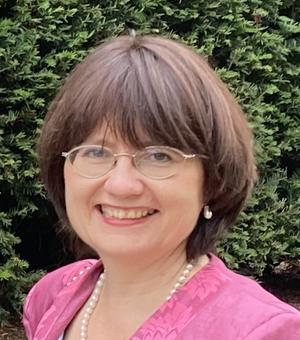Professor Kate McLoughlin
I am both a specialist in post-1900 literature with a particular expertise in war writing and a trans-historicist.
Currently, I am writing a literary history of silence, funded by a Major Research Fellowship from the Leverhulme Trust. Over eleven centuries of English Literature, silence has had many guises and many hiding-places. My book will guide readers on a tour taking in the silent states of exile on icy seas described in Anglo-Saxon poems, the hushed intimacy of medieval lullabies, exalted states of blissful union with the divine, the tongue-tied lovers of the Renaissance, spell-binding silent scenes in Shakespeare, encrypted expressions of same-sex love, reason-based reticence, the Romantic sublime, the surprising silences of the garrulous realist novel, the great epics of inarticulable grief, wordless communings with Nature, Modernist depictions of interiority, the failure of words in the face of two World Wars, experiments with visual and acoustic silences in contemporary prose, poetry and drama, and searches for silence in our own Age of Pings. In the process, I am excavating the intellectual and cultural ideas behind silence and trying to work out how literary silences are formally created.
In tandem with this literary history, I am editing an anthology of poems about and evoking silence, Silence Please, for Bodleian Publishing. I am also thinking about methodologies for theorizing textual silences. With the historian Suzan Meryam Kalayci and the Ritblat Professor of Mindfulness and Psychological Science, Willem Kuyken, I convene the Silence Hub (SH), an inter-disciplinary, public-facing network for scholars interested in silence. In 2017, I held a Knowledge Exchange Fellowship at the Oxford Quaker Meeting, beginning to learn about silence, spirituality and poetry.
My interest in silence arose from the my work on war writing. My most recent monograph, Veteran Poetics: British Literature in the Age of Mass Warfare, 1790-2015 (2018), reads the literary war veteran in the literary-philosophical contexts of the age of modern, mass, industrialized warfare, illustrating how ex-combatants have been deployed by authors from William Wordsworth to J. K. Rowling to explore questions relating to being, knowing and communicating. What can be recovered from the past? Do people stay the same over time? Are there right times of life at which to do certain things? Is there value in experience? How can wisdom be shared? The final chapter looks at the figure of the silent war veteran - the former fighter who, against expectations, refuses or is unable to tell stories about the wars he has been in - and suggests that this expresses an epistemological crisis central to understanding post-Enlightenment modernity.
My previous publications include Authoring War: The Literary Representation of War from the Iliad to Iraq (2011), Martha Gellhorn: The War Writer in the Field and in the Text (2007) and, as co-editor and editor, The First World War: Literature, Culture, Modernity (2018), Writing War, Writing Lives (2017) and The Cambridge Companion to War Writing (2009). I am the editor of The Modernist Party (2013), which includes my own essay on why J. Alfred Prufrock is so afraid of going to a tea-party, and co-editor of Memory, Mourning, Landscape (2010) and Tove Jansson Rediscovered (2007). I am also the editor of British Literature in Transition: 1960-1980 - Flower Power, which includes an essay by me on light effects in Philip Larkin's poetry. I have also published articles and chapters on many other modern and contemporary writers, including Adnan al-Sayegh, Mary Borden, T. S. Eliot, Ford Madox Ford, Allen Ginsberg, Henry James, Tony Kushner, D. H. Lawrence, Dunya Mikhail, Iris Murdoch, Dorothy Richardson, Philip Roth, Edith Wharton and Virginia Woolf. My articles have appeared in journals such as Critical Inquiry, Essays in Criticism, Journal of Modern Literature and Textual Practice. I regularly review contemporary fiction for the Times Literary Supplement.
In 2017-18, I co-convened a Mellon-Sawyer international seminar series, Post-War: Commemoration, Reconstruction, Reconciliation from which arose On Commemoration: Global Reflections upon Commemorating War (2020). To foster scholarly collaboration and collegiality in the field of war representation, in 2010 I co-founded the War and Representation Network (WAR-Net), with Professor Gill Plain of the University of St. Andrews. WAR-Net now has over 250 members across six continents. With Gill, I am also co-General Editor of the monograph series Edinburgh Critical Studies in War & Culture. We welcome book proposals from scholars at all stages of their careers. I also founded and co-convene the Writing War research cluster here in the Oxford English Faculty.
I am particularly interested in supervising dissertations on literature and silence (any aspects), and am also open to proposals on war writing, modernism and post-1900 literature more generally.
- Prelims Papers 1B, 3 & 4
- FHS Papers 5, 6 & 7
- MSt and DPhil supervision in literature and silence, war writing, modernism, and post-1900 literature more generally.
I read English Language and Literature as an undergraduate at Somerville College, Oxford, and took an MPhil in Renaissance Literature at St. John's College, Cambridge. I then qualified as a barrister and worked for the Government Legal Service for seven years, with stints at the European Commission in Brussels, the Conseil d'Etat in Paris and the Office of the Parliamentary Counsel, before returning to Somerville for an MSt, this time in modern literature, and a DPhil which I completed in 19 months. I was then a Junior Research Fellow at Balliol College, Oxford, a Lecturer and Senior Lecturer at the University of Glasgow, and a Senior Lecturer and Reader at Birkbeck, University of London. In 2014, I became a Tutorial Fellow of Harris Manchester College. I have received Teaching Excellence Awards at both Birkbeck and Oxford. I'm also a published poet and an Associate of the Royal College of Music in piano performance. I love studying languages, am pretty competent in French and Italian and have also tackled (with varying degrees of success and no fluency) Arabic (modern standard), German, Latin, Hebrew (biblical), Russian, Spanish and Yiddish.




